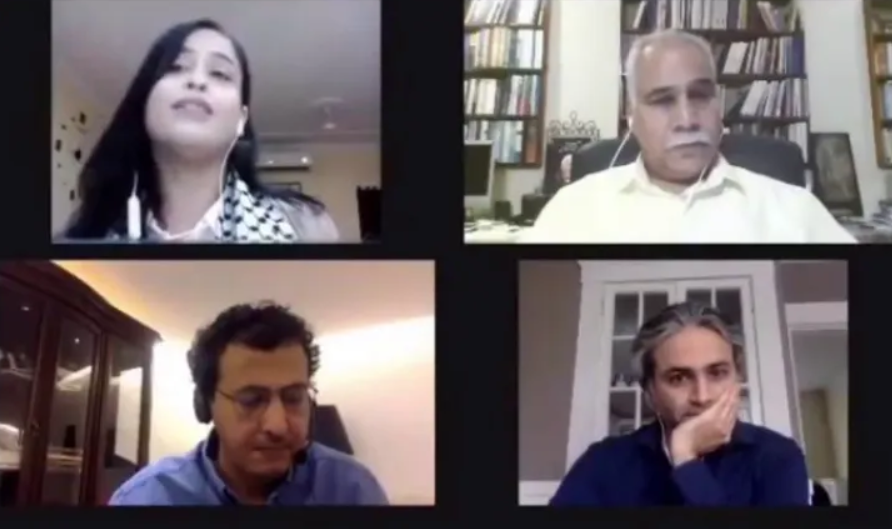12 May 2020 – On Saturday, Bahrain’s government forced the cancellation of an online symposium featuring speakers opposed to the normalisation of diplomatic ties between the Gulf States and Israel. The online broadcast was suspended shortly after it began, following a call to event organisers by Bahrain’s Ministry of Labour and Social Development with orders from “high authorities” to halt the event, the Bahrain Institute for Rights and Democracy (BIRD) and Americans for Democracy and Human Rights in Bahrain (ADHRB) said today.
While Bahrain’s government has pushed strongly for the normalisation of ties between Israel and the Gulf States, hosting the Trump administration’s ill-fated “Deal of the Century” conference last year, many Bahrainis have vocally opposed the move. The conference, which featured speakers from Bahrain, Kuwait, Saudi Arabia, Oman and Palestine was organised by the Bahrain Democratic Youth Society, who apologised online for the event’s abrupt cancellation.
The disruption of Saturday’s event represents a new and worrying development in the Bahraini government’s longstanding efforts to restrict citizens rights to free expression, assembly and association, illustrating how the COVID-19 crisis has been exploited by authoritarian governments to expand their coercive apparatus into the online sphere.
In recent years, Bahrain’s government has introduced sweeping cybercrime legislation to criminalise online dissent and several prominent prominent opposition figures have been targeted. In 2018, Bahrain’s most renowned human rights defender, Nabeel Rajab, was sentenced to 5-years in prison for tweets exposing torture in Bahraini prisons and criticising the country’s involvement in the Saudi-led war on Yemen. His sentence was upheld by Bahrain’s highest court on 31 December 2018.
Similarly, in March 2019, former leader of the dissolved secular Wa’ad party, Ebrahim Sharif, was handed a six-month suspended sentence for tweets criticising deposed Sudanese president Omar Albashir. Weeks later, Bahraini journalist Adel Marzooq was accused of cybercrime for analysing regional politics on Twitter.
Bahrain’s government has made clear its intention to expand their policing of social media. In May last year, Bahrain’s Ministry of Interior announced they would prosecute individuals who follow or circulate posts from “inciting accounts”, adding that “countering inciting social media accounts that promote sedition and threaten social fabric and civil peace was a national duty.” The announcement was condemned by Twitter’s Public Policy team, who stated such measures “would “pose a significant risk to free expression and journalism” in the country.
Sayed Ahmed Alwadaei, Director of Advocacy at BIRD, commented: “This is sadly only the latest example in a worrying trend of online censorship by Bahraini authorities attempting to prevent the public from challenging – or even discussing – government policies. With already limited civic space further restricted by draconian COVID-19 lock-down measures, these attacks on social media are dismantling one of the last avenues for free expression available to Bahrainis.”
Husain Abdulla, Executive Director at ADHRB commented: “Since the uprising of 2011, the Bahraini state has chipped away at the civil liberties of their citizens, with the repressive policing of social media and online activity emerging as one of the greatest threats to free expression and assembly in recent years. The cancellation of Saturday’s event represents a new low in the Bahraini government’s relentless campaign against dissent, exposing the difficulties faced by Bahrainis simply attempting to speak their minds.”





